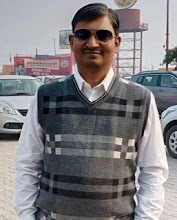CIVICS(VI) CHAPTER 3
WHAT IS GOVERNMENT
(LESSON NOTES)
v INTRODUCTION
ØIn our daily life, in News papers, on TV, radio, etc, we hear the word Government many times.
ØIn this lesson we will learn about what is government and its role in our lives.
ØHow do they decide what to do?
ØWhat is the difference between different types of governments.
v GOVERNMENT:
Ø The system or machinery present in each country in order
to make decisions for the proper running of the country is called government. Each
country needs a government to make important decisions and function well.
v FUNCTIONS OF GOVERNMENT
Ø The government also takes care of
international boundaries and relations with other countries.
Ø It is responsible for the transport facilities and health facilities for citizen.
Ø The government makes laws for the protection of people.
Ø During the natural calamities or disaster the government organizes aid and assistance for the affected people.
Ø Government also solves the disputes and punishes the criminal through courts.
v LEVELS OF
GOVERNMENT:
Ø The government works at different levels: National, State and Local level.
Ø National
Level: It refers to
the area of the government which is concerned with national issues such as
taxation, defence, international relations and trade.
Ø State
Level: Each of the
State Governments has its own police force, education system and road laws.
Ø Local
Level: The local
governments are known as Panchayats in rural areas and Municipal Corporations,
Municipalities and Nagar Panchayats in urban areas.
v
LAWS AND THE GOVERNMENT:
Ø Laws: The rules laid down by the government
for the proper functioning of the country are called laws.
Ø It is the responsibility of both the
government and citizens to follow the law.
Ø Laws need to be enforced for proper function
of the government.
v TYPES OF
GOVERNMENT:
Governments can be classified into several types. Some of the
most common types of governments are a democracy, monarchy, etc.
Ø DEMOCRACY
Ø A system of government in which the people
(citizens) of the country choose their leaders to rule is called democracy.
Ø The word ‘democracy’ originates from the Greek
words ‘demos’ and ‘krotos’, meaning “rule of the people.”
Ø MONARCHY:
Ø A system of government which is run by a
king/queen on a hereditary basis is known as monarchy.
Ø Sometimes, a king is called an “emperor”.
v FEATURES OF DEMOCRACY
Ø In a democracy people participated in
election.
Ø Elections are held regularly after a specific
period (5 year).
Ø In a democracy people rule themselves by
participating in the making of these rules.
Ø Presently mostly democratic
governments referred as representative democracies which means-
§ Representative Democracy: The types of
democracy in which the citizens do not participate directly instead, choose
their representatives through an election process. These representatives meet
and make decision for all people.
v
WOMEN’S SUFFRAGE:
Ø A Movement started in the early 20th century
vigorously for many years, demanding equality with men and the right to vote
was known as suffrage movement.
v
UNIVERSAL ADULT FRANCHISE:
Ø When the constitution granted the voting
rights to all adults without any discrimination that is known as universal
adult franchises.
Ø There are instances in history when
governments did not allow women, the poor people and the uneducated to vote.
Ø But when India got independence, the universal
adult franchise was enforced.
Ø In India , people who have completed 18 years
have the voting rights.
v TERMS-
Ø Elections: The process in which citizens of a
democratic country cast their votes for the leaders of their choice is called
the election.
Ø Universal
Adult Franchise: The rule
that allows all adults in the country, irrespective of caste, creed, gender,
literacy, occupation, etc., to vote and take part in the elections, is the
universal adult franchise.
Ø
Young India – Journal OF Mahatma Gandhi.
Ø A mark with blue ink is
put on left Index finger to make sure that a person casts only one vote.







No comments:
Post a Comment